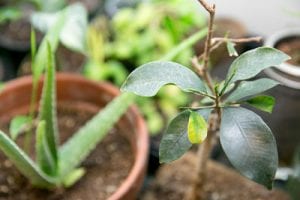By Steve Goodman
With H1N1 or the so-called Swine Flu, and its predecessor, the Avian Flu, making headlines world wide – influenza is in the news, and on the minds of many people. As potentially hazardous as these two strains can be – the truth is, the typical seasonal flu takes far more lives in the United States every year then these two strains ever have. Many people are looking to Chinese medicine for prevention and treatment of the flu.
Traditional Chinese medicine (TCM) and other Oriental medical practices have a long and successful history of treating and preventing winter colds and flu. The most common way that Western medicine offers for dealing with the potentially deadly complications of seasonal flu is to use vaccination. The potential risks of vaccines have been well documented. While vaccines have proven to prevent certain strains of the flu – one vaccine cannot prevent all variants of the disease, and a flu shot does absolutely nothing to prevent or lessen the severity of colds.
Chinese medicine, on the other hand, is designed to strengthen the immune system when it is at its most vulnerable – during the winter and flu season. Qi, when restored and strengthened, can prevent the acquisition of colds, flu, and other seasonal viral infections. In the Chinese medicine tradition, the symptoms of H1N1 and any flu are the result of pathogenic heat, cold, or dampness. Chinese medicine for prevention and treatment of the flu has an old tradition of using herbal medications to boost qi, and prevent these pathogens from gaining egress into the body. In fact, in China, school children are served herbal teas during flu season to prevent the spread of colds and flu.
Herbal Medications and Flu
Various herbal formulas are used in TCM to treat the different symptoms of the flu. Respiratory issues are treated with herbs such as Jiu ma huang (aka Chinese ephedra). Other treatments for the respiratory conditions associated with colds and flu used in China include an oral liquid called Shuanghuanglian, which is a formula made up of baikal skullcap root, honeysuckle, and forsythia. For the digestive distress that is also often associated with flu, TCM suggests herbs in the family of Ge gen (radix puerariae) and ageratum.
Are you interested in becoming a certified acupuncture professional?
Visit the links below to explore our specialized acupuncture programs at a campus near you:
The fever that is common to viral infections such as colds and the flu, is believed in Chinese medicine to be caused by a Heat pathogen. Heat pathogens are traditionally and effectively treated in Chinese medicine with herbs such as Huang Lian (Coptis chinensis), which has specifically shown promise against influenza viruses in clinical trials.
It is interesting to note that viruses, such as those that cause colds and the flu, mutate rapidly. Western medicine traditionally develops ant-viral medications with a single active ingredient. Chinese herbal medications use many ingredients, with individual practitioners often developing their own unique formulations. It is therefore much easier for mutated viruses to become resistant to traditional pharmaceuticals, then to the herbal elixirs of Chinese medicine.
Sources
http://www.china.org.cn/health/2009-05/13/content_17767231.htm
http://www.tcmpage.com/hpcoldflu.html
Featured Posts:

